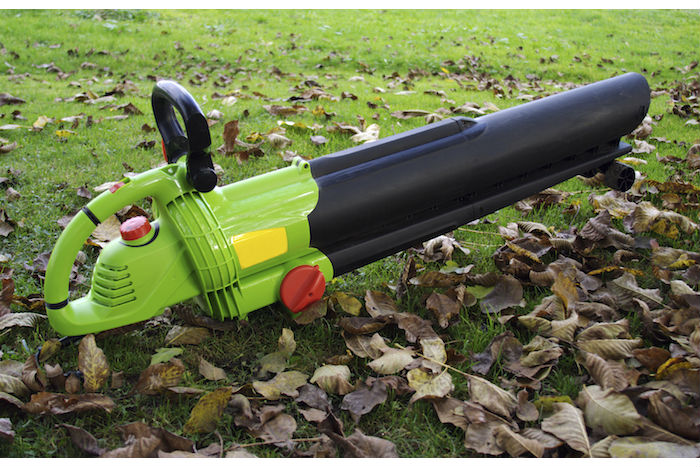View from the Garden: This Blows – Leaf Blowers Ruining Your Garden

I call them…the Blowers. There are many days I hear the leaf blowers going nonstop. Last fall, the Blowers worked at two houses on my block for three solid days. This spring they were back at the same properties for two more days.
I recognize the Blowers are not the problem. They are merely the effect, the causes of which are demanding clients—many of whom may not actually be at their homes when the lawns are being blown. Therefore, they don’t have to hear the noise, smell the pollution, be coated in the dust the Blowers stir up.
I work in gardens abloom with spring flowers and the trill of bird song—backed by the drone of leaf blowers.
These are the reasons I HATE the machines:
They pollute. Their two-stroke engines don’t completely combust fuel, meaning that their exhaust fills the air with carbon monoxide, nitrous oxide, hydrocarbons, benzene and other carcinogens. Running one of those babies for one hour releases approximately the same amount of pollutants ad driving a car 100 miles! One hour of blowing pollutes the same amount as 40 cars idling in the lot for the same amount of time.
Bad for breathing. The nozzle blows hot, dry air at speeds of 180 miles-per-hour onto lawns and garden plants. This mighty wind kicks particulates into the air, onto your garden plants, onto your outside furniture, your car, children and pets. Mold and fungus spores, weed seeds, pollen, insect eggs, chemicals from lawns and trees, bird, rodent, cat and dog feces, and heavy metals from street dust are blown with fierce force by the machines.
Bad for plants. Leaf blowers upset topsoil, compost and mulch from the garden. We weed, then the weed seeds are blown right back into place. We apply fungicide and spores are blown back onto plants. Soil microorganisms are blown away, making plants less healthy so we use fertilizer. We blow leaves from under hedges and shrubs and then apply mulch.
Permanent hearing loss. A blower at full force—and I have NEVER been able to convince a worker to operate a leaf blower other than at full force—produces 90 decibels of noise. OSHA requires workers using equipment generating more than 85 decibels to wear hearing protection. Above 75 decibels there is risk of hearing loss.
How many times do you see leaves from a lawn being blown into the street? And from the street being blown back on the lawn form which they came, or onto some other lawn in the neighborhood? It’s a never-ending cycle. The leaves are blown into the drain, which they clog. Worst of all, these leaves eventually enter our local waters, carrying with them all the pollutants they’ve accumulated in their short lives being blown around.
When I became a professional gardener 20 years ago, we raked leaves. That seemed to work just fine! Now that leaf blowers have become an integral part of the landscaper and gardener’s toolbox, it seems that lawn and gardens, strips of grass in the medians of streets and by the sides of highways, and the town greens and parks must look as clean as a living room carpet. Workers with blowers spend hours removing every leaf particle and blade of grass from a property.
Why is the beauty of a raked lawn unacceptable? Raking saves money and removes most of the problem. What is the difference in cost from your landscaper for a raked lawn versus a lawn blown for hours?
Jeanelle Myers is a professional gardener, landscaper and consultant. For gardening discussion you can call her at 631-434-5067. jeanellemyersfinegardening.com



